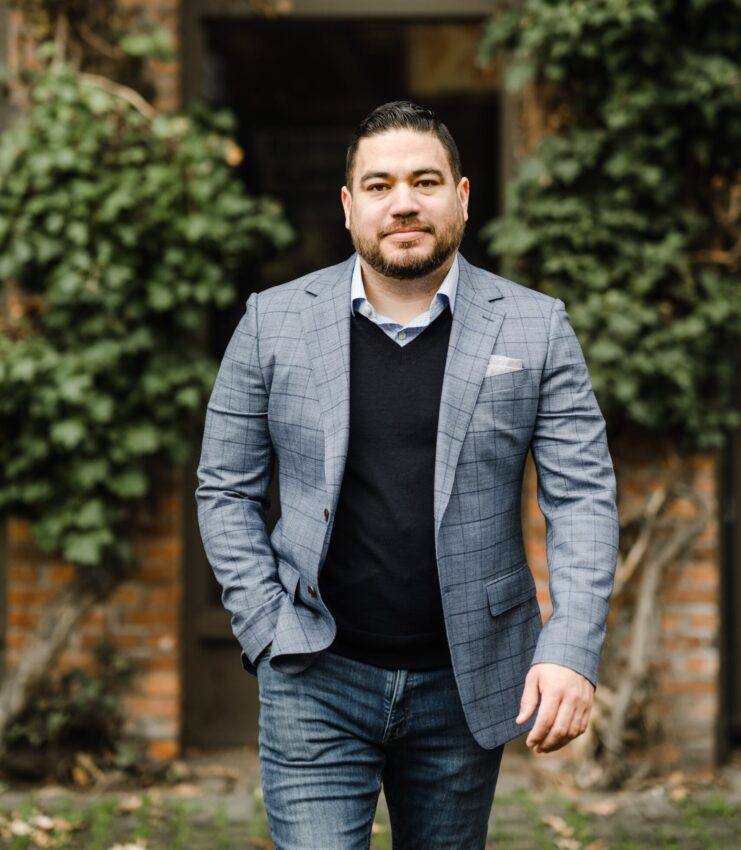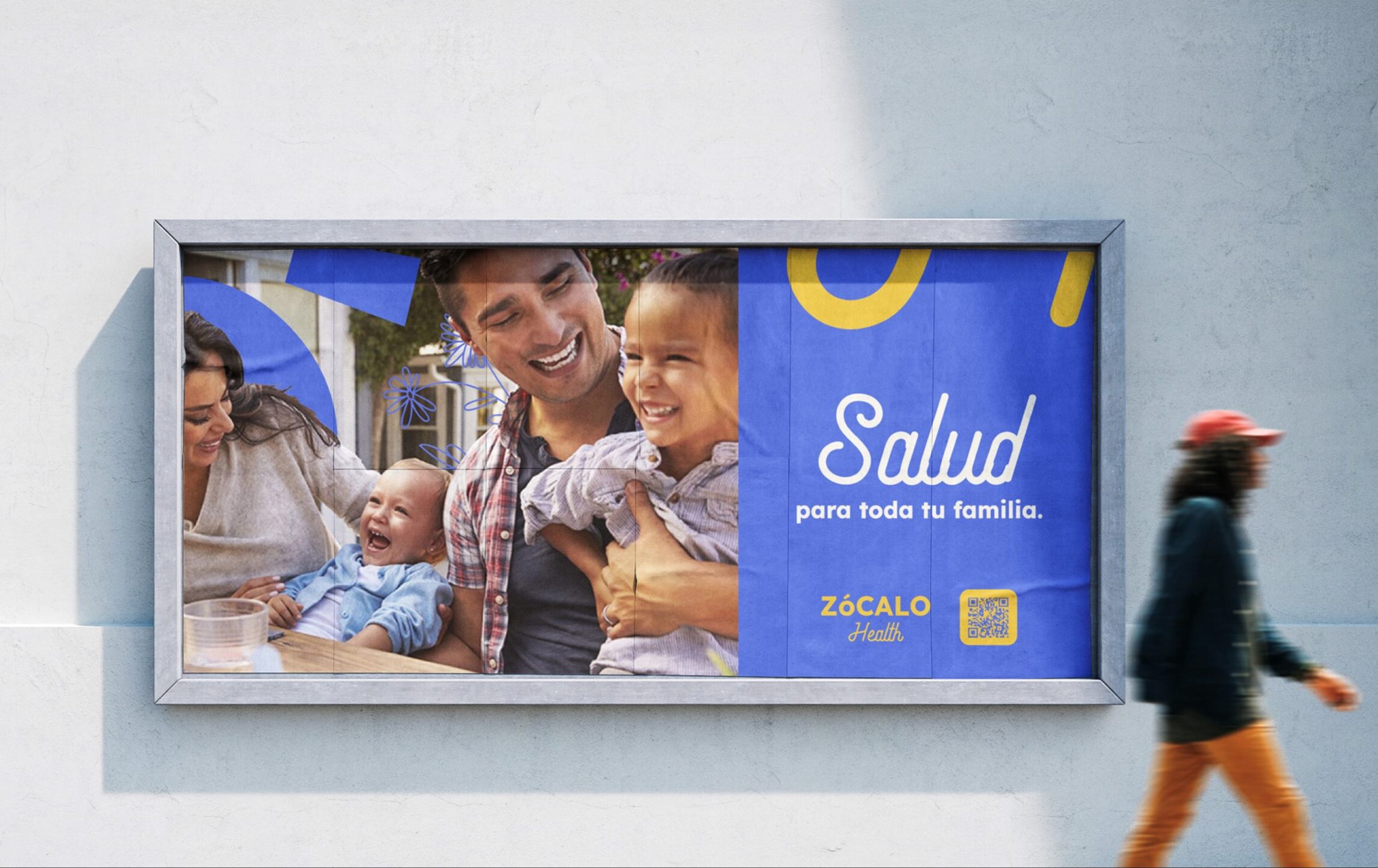
Share On Social!
A young Erik Cardenas sat quietly in his chair, gently swinging his legs back and forth.
He clasped his hands together and observed the clinic waiting room.
He could hear some patients chattering with family members in Spanish. Others looked like they could doze off any minute.
“Cardenas?” called out a nurse holding a clipboard.
Erik sprung from his chair and followed his parents and the nurse into the doctor’s office. He was glad the waiting game was over.
“As Mexican immigrants living in Houston, my parents didn’t have the best access to healthcare,” a grown Cardenas recalled. “I have a lot of memories of waiting hours at community safety net clinics, and after a multiple hour wait, you were lucky to see the doctor for five minutes.”
Cardenas also recalls the lack of Spanish-speaking healthcare providers. He often served as a translator during his parents’ doctor appointments.
His family often delayed care due to their frustrating experiences.
“A lot of these safety net clinics that our Latino community depended on weren’t really anchored in convenience or patient experience. It was an overall bad experience,” Cardenas said.
But the experience motivated him to make a big change to improve healthcare access for Latinos.
Building a Career

In addition to not having the best access to healthcare, the Cardenas family also did not have the best access to education.
Despite the circumstances, Cardenas grew up to be the first in his family to get into a major university.
He went to Texas A&M University in the fall of 2000 with a dream of becoming a pediatrician so he could help alleviate health disparities in Latino children.
However, there was a small set back – Cardenas got kicked out of college shortly after starting classes. As a first-generation college student, he didn’t have a strong support system and wasn’t ready for the increased academic workload.
While his pediatrician career didn’t work out, he knew he still wanted to work in healthcare to help improve the Latino patient experience.
In the summer of 2001, he ended up working the front desk at an outpatient imaging clinic in Houston, which happened to be one of the first clinics to adopt an early version of an electronic health record system.
He took advantage of on-the-job training to learn how to use this new technology.
“That was really what gave me this opportunity to climb the corporate ladder,” Cardenas said. “Because this was new technology for the time, there was a lot of demand for people who understood it.”
Over time, Cardenas became a leader in his field of healthcare technology. He became known for his natural talent of using technology to save healthcare facilities time and money, which increased patient capacity and cut healthcare costs.
Climbing the corporate ladder took Cardenas, his high school sweetheart Lupita, and their growing family all over Texas, including San Antonio, where he would finally pursue his dream of getting a college degree.
He began working toward a bachelor’s degree in business administration with a minor in computer science and marketing at the University of Incarnate Word in 2015, even though his career was already well-established.
“I wanted to show my kids that your path doesn’t have to be linear. You come back to school if you want to,” Cardenas said.
Over the course of three years, Cardenas established a routine between his family, school, and work. He was comfortable.
Then one day in 2018, he got LinkedIn message that changed everything.
It’s a Scam!
When Cardenas saw who the message was from, he was sure it was a scam.
“They were like, ‘Hey, I work for Amazon. I’m a recruiter. There’s a project that we’d like to interview you for. Are you interested?’ And I was like, sure, can you share more? And they were like, ‘Actually, we can’t,’” Cardenas explained.
Intrigued, he flew to Seattle for an interview.
“They said, ‘Look, if we offer you the job, we can’t tell you what you’re going to be working on until your first day.’”
Despite the lack of information on what the job would entail, Cardenas accepted the job offer, moved his family to Seattle, and began working for Amazon in February of 2018.
To his surprise, he was one of 12 original recruits to begin building Amazon Care, a telehealth urgent care and primary care service for Amazon employees.
While Amazon Care ended its operations in December 2022, Cardenas gained invaluable experience working there from 2018 to 2021.
He used his passion for technology to bring telehealth services, including COVID-19 care, to patients in seconds. His work made a huge impact on keeping Amazon employees healthy during the COVID-19 pandemic.
“I was feeling great about my career, Amazon was an amazing experience,” Cardenas said.
However, the COVID-19 pandemic highlighted health inequities, like limited access to healthcare, in Latinos and other people of color.
As a Latino himself who grew up with limited access to healthcare, Cardenas felt compelled to help.
So, he resigned from his post at Amazon Care and launched another chapter in his career.
Zócalo Health is Born

With the support from his family, Cardenas decided to start his own telehealth company focused on providing affordable primary healthcare for Latino families.
His planning for what would become Zócalo Health began in the spring of 2021 with his cofounder, Mariza Hardin, MPH, who he met at Amazon.
Over the course of several months, the duo secured venture capital, worked out the legal details, and hired culturally competent healthcare providers, including nurses, doctors, and promotoras de salud.
In July of 2022, Zócalo Health treated its first patient out of California, and since then, the small company of 15 staff members has provided healthcare to hundreds of patients across California and Texas.
“Our goal was to reduce the cost of care while improving health outcomes for the Latino community. We didn’t want Latinos to choose between paying for a medication or other essential expenses,” Cardenas said.
With a family membership priced at $60/month, Zócalo Health can certainly be a more affordable healthcare option for low-income families. Memberships come with mental health support, a personalized care plan, flexible scheduling, and even a promotora de salud who is available by chat, phone, or video to help patients navigate care.
Individual one-time visits with a bilingual physician are also well-priced at $50/visit.
“If we cannot provide you care, our promotoras will work with you to help you find the appropriate care in your community,” Cardenas said.
To book a virtual appointment or to meet with a promotora de salud to learn more about membership plans, patients can simply visit the Zócalo Health website.
The best part about Zócalo Health? No health insurance required.
“We see you. We understand you. We’ve got you — y tú familia,” according to the Zócalo website.
Future of Zócalo Health
Like any big project, Cardenas explained that you first learn to crawl before you can walk or run. Zócalo Health “is certainly in the crawl phase.”
But big plans are ahead for the start-up company.
In the future, Cardenas is considering expanding to offer in-person healthcare services.
Zócalo Health also has a lot of interest from health insurance companies.
“We don’t take insurance yet, but when we do, it just means that we’re going to be even more accessible to patients,” Cardenas said.
A New Phase in Life
What ever happened to Cardenas’ second chance at college?
Amid building Amazon Care, moving to Seattle, being a full-time father and husband, and navigating a once-in-a-lifetime pandemic, Cardenas finished his college degree online in 2020.
“It was quite the journey,” Cardenas said.
And as it turns out, many people resonate with Cardenas’ story of adversity, second chances, and honest hard work. He and his work have been featured in Hispanic Executive, The Seattle Times, and Authority Magazine.
“My advice for people that may find themselves in a similar situation is that you need to take every opportunity to learn,” Cardenas said. “From the sadness, learn something; from the happiness, learn something; from the setback, learn something; from the success, learn something. Never stop learning from any situation in life, for that is where the wisdom lies.”
Further, Cardenas explained that surrounding yourself with diverse people is key in personal and professional growth.
“From a healthcare perspective, we really need to have a team that understands and can respond to the unique needs of the Latino community,” Cardenas said. “Latinos deserve a healthcare team that speaks our language, delivers compassionate care, and aligns with our culture. That’s why I created Zócalo Health.”
Learn more about Zócalo Health!
Explore More:
Health EquityBy The Numbers
1
out of 10
Pedestrians survive when hit by a car at 40 MPH
This success story was produced by Salud America! with support from the Robert Wood Johnson Foundation.
The stories are intended for educational and informative purposes. References to specific policymakers, individuals, schools, policies, or companies have been included solely to advance these purposes and do not constitute an endorsement, sponsorship, or recommendation. Stories are based on and told by real community members and are the opinions and views of the individuals whose stories are told. Organization and activities described were not supported by Salud America! or the Robert Wood Johnson Foundation and do not necessarily represent the views of Salud America! or the Robert Wood Johnson Foundation.



